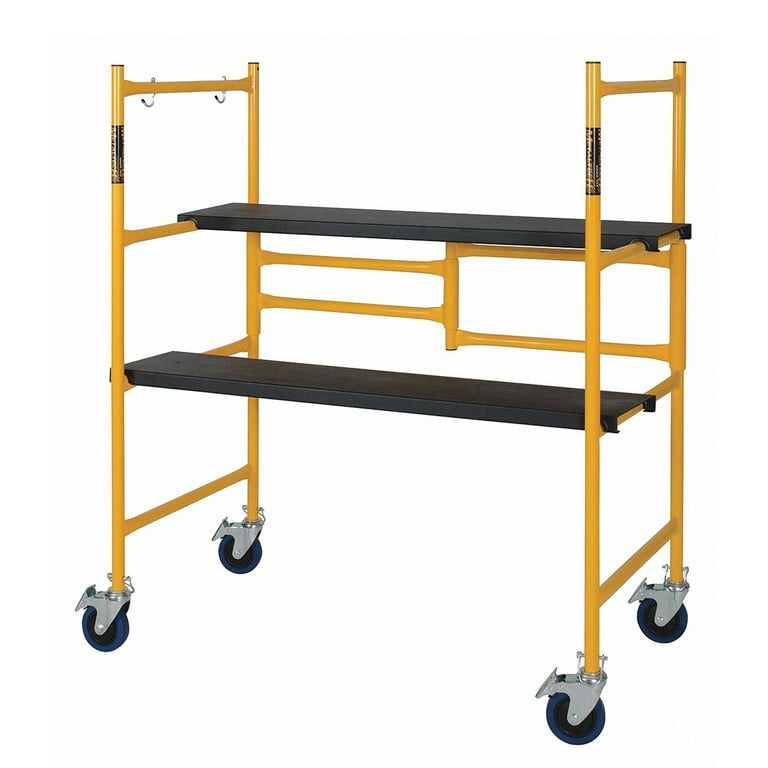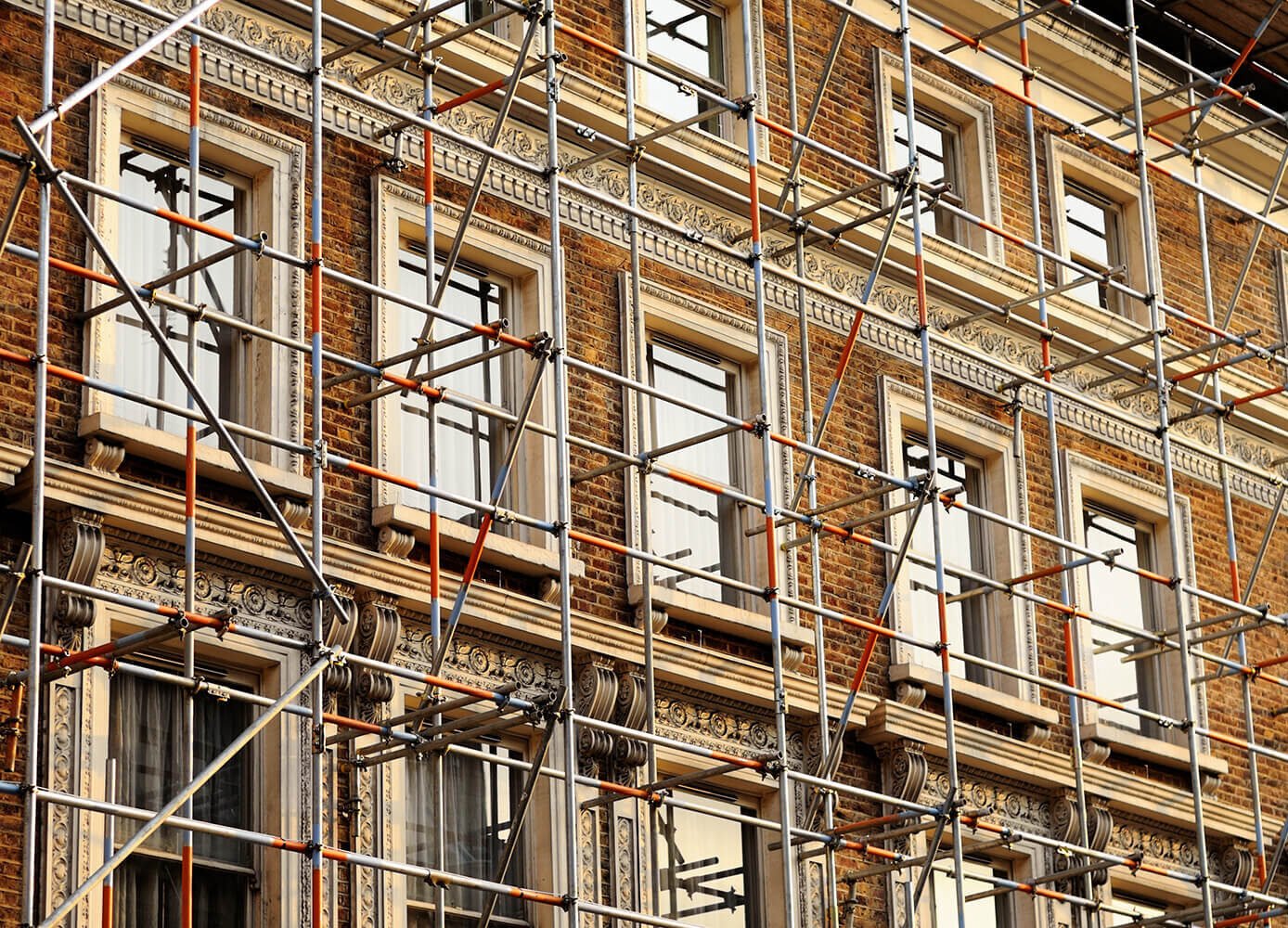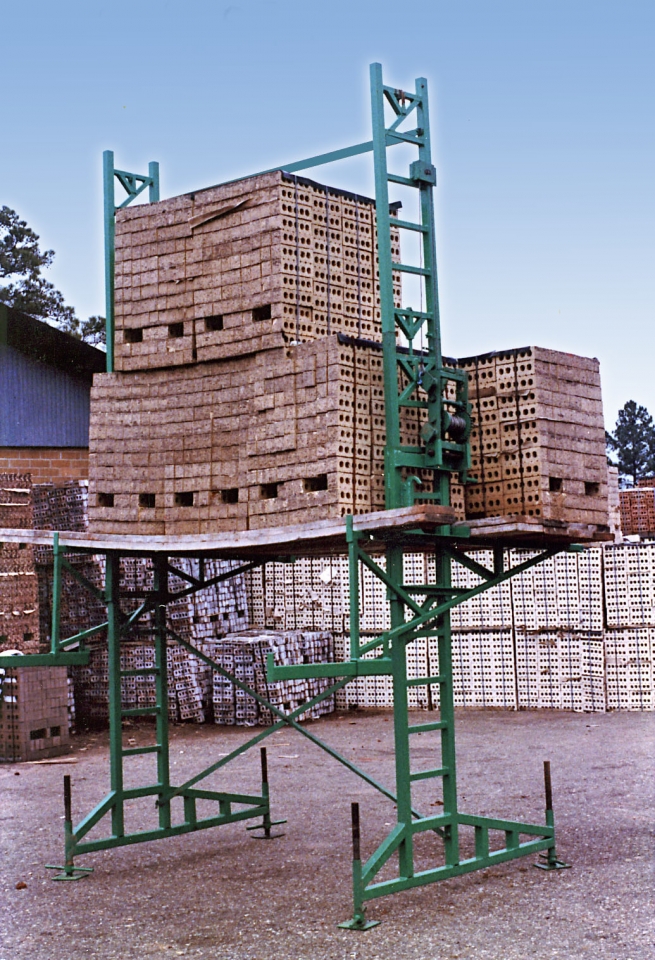Affordable and Professional Scaffolding Cobham Services Available Now
Affordable and Professional Scaffolding Cobham Services Available Now
Blog Article
Discovering the Different Kinds Of Scaffolding Made Use Of in Building Projects
The building sector relies heavily on various types of scaffolding to meet details job needs, each offering distinctive advantages and applications. Traditional framework scaffolding supplies a tough structure for general tasks, while put on hold scaffolding is vital for work on high-rise structures.

Standard Framework Scaffolding
Standard framework scaffolding is just one of one of the most extensively made use of techniques in the construction industry due to its toughness and convenience. This system consists of horizontal and upright frames that are constructed to create a secure platform for materials and employees. The main elements consist of upright articles, straight ledgers, and diagonal dental braces, which with each other offer a solid structure that can support substantial loads.
One of the key advantages of typical structure scaffolding is its versatility to various building and construction jobs, varying from domestic structures to large industrial structures. The modular design allows for simple assembly and disassembly, making it reliable for both temporary and lasting projects. Additionally, the system can be customized in elevation and size, suiting different building layouts and site conditions.
Safety and security is paramount in scaffolding applications, and typical structure systems are furnished with guardrails and toe boards to avoid falls and make certain worker defense. Moreover, routine assessments and adherence to security regulations are critical in preserving the honesty of the scaffold. In general, traditional structure scaffolding continues to be an essential selection in the building industry, giving a trustworthy system for labor and enhancing overall job efficiency

Suspended Scaffolding
Put on hold scaffolding offers an one-of-a-kind option for building and construction jobs that require accessibility to elevated surfaces, especially in circumstances where standard framework scaffolding might be impractical. This sort of scaffolding is usually suspended from the roof covering or top degrees of a structure, utilizing a system of pulleys, systems, and ropes to create a working room that can be readjusted to numerous heights.
Among the main advantages of put on hold scaffolding is its adaptability. It can be conveniently rearranged or decreased to accommodate changes in building and construction requirements, making it ideal for jobs such as home window installation, frontage work, and maintenance on skyscrapers. Furthermore, the very little impact of suspended scaffolding enables for better use of ground space in urban settings, where space is commonly minimal.
Safety is a crucial consideration in the usage of put on hold scaffolding. Overall, put on hold scaffolding provides a effective and reliable remedy for accessing hard-to-reach locations in numerous construction circumstances, boosting both efficiency and safety and security on site.
System Scaffolding
System scaffolding, typically considered as a modern remedy in the scaffolding industry, consists of pre-engineered parts that can be promptly assembled and adapted for different building and construction jobs. Scaffolding. This type of scaffolding is characterized by its modular style, which enables for convenience and efficiency on task websites, suiting structural requirements and various heights
Commonly made from high-strength steel or light weight aluminum, system scaffolding provides enhanced sturdiness and stability. The components consist of vertical blog posts, horizontal ledgers, and diagonal braces, which adjoin securely, ensuring a robust structure. The design usually includes standard fittings, simplifying assembly and disassembly processes, thereby lowering labor time and prices.

Rolling Scaffolding
Moving scaffolding is a versatile choice to standard set scaffolding, designed for wheelchair and convenience of usage on building sites. This type of scaffolding includes a system sustained by frames with wheels, permitting workers to easily move it as required. The mobility attribute considerably boosts efficiency, as it lessens downtime linked with dismantling and constructing fixed scaffolding.
Normally created from light-weight materials such as light weight aluminum or steel, rolling scaffolding offers a strong yet mobile solution for jobs requiring regular repositioning - Scaffolding. It is especially advantageous in jobs such as painting, drywall installation, and electrical work, where access to numerous elevations and places is essential
Safety and security is vital in rolling scaffolding style, with features such as locking wheels to avoid unexpected motion when in use, and guardrails to safeguard employees from falls. Additionally, lots of models are adjustable in height, suiting different task demands.
Cantilever Scaffolding

The style of cantilever scaffolding typically entails utilizing arms or brackets secured to a building or framework, making it possible for the platform to extend exterior safely. Security is paramount; thus, these scaffolds need to be engineered to hold up against numerous loads and ecological problems. Regular examination and maintenance are vital to make certain structural integrity and employee safety.
Cantilever scaffolding is preferred for its convenience and effective use of space, making it a preferred option in city environments where space constraints are usual. It promotes easier accessibility to high altitudes, eventually adding to the total efficiency of building jobs. Just like all scaffolding types, proper training and adherence to safety standards are critical for employees making use of cantilever scaffolding.
Conclusion
Conventional frame scaffolding provides security, while put on hold scaffolding supplies flexibility for elevated tasks. System scaffolding promotes fast assembly, and rolling scaffolding boosts movement for varying work atmospheres.
Traditional frame scaffolding gives a durable foundation for basic jobs, while put on hold scaffolding is necessary for work on skyscraper structures.Rolling scaffolding is a flexible choice to conventional fixed scaffolding, developed for wheelchair and convenience of use on construction websites. As with all scaffolding kinds, correct training and adherence to security criteria are vital for workers utilizing cantilever scaffolding.
Standard structure scaffolding provides stability, while put on hold scaffolding supplies convenience for raised jobs. System scaffolding facilitates fast assembly, and rolling scaffolding boosts flexibility for differing job environments.
Report this page